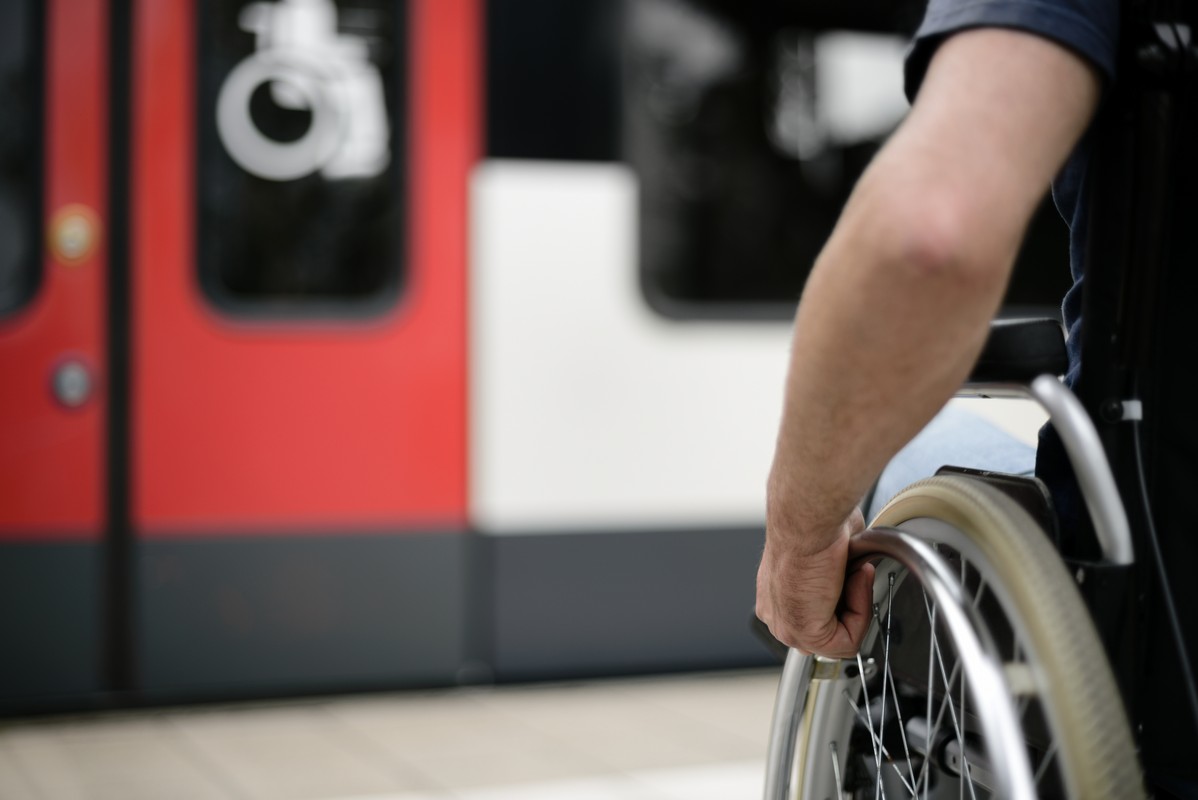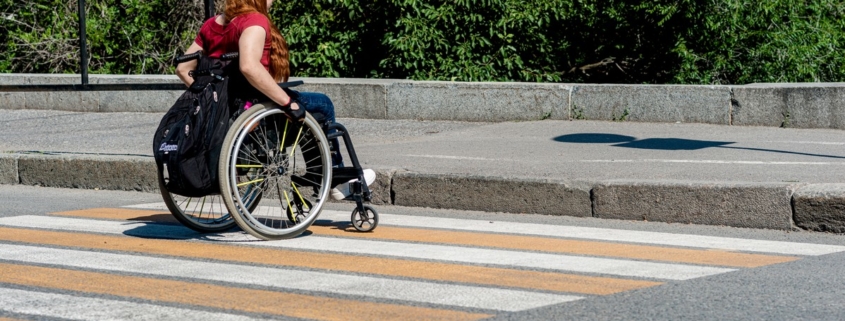Lawsuits filed against large businesses and local governments regarding failures in ADA compliance have become commonplace, leading to settlements in the billions of dollars that require major renovations and repairs. The Americans with Disabilities Act requires cities and businesses to install equipment and design spaces that ensure meaningful access for those who are disabled.
While Atlanta, Portland, and Los Angeles are famous examples of cities with settled lawsuits and commitments into the billions of dollars to make their sidewalks, crosswalks, and ramps ADA-compliant,1 small businesses and localities are increasingly a target of litigation, often under Title III of the ADA. These recent examples of landmark lawsuits are lessons for smaller communities and business owners alike.
Manderson v. New York City Department of Education
This case was filed in May 2020, pointing out the lack of accessible restrooms and evacuation points for disabled employees. The lawsuit alleges that less than 25% of New York schools meet ADA compliance standards.2 As a community center that also hosts town meetings and serves as a voting place, local schools can be required to provide accommodations for all community members who seek access, regardless of disability. The costs for this single education system to achieve compliance are sure to be quite high.
Liberty Resources, Inc. v. the City of Philadelphia
Despite losing a lawsuit almost 25 years ago and being found liable for the condition of sidewalks in the city at that time, another lawsuit has been filed calling out the failure to remove barriers to accessibility. The suit cites unsafe curb ramps, slopes, or a lack of any accessible routes that continue to prevent access for disabled pedestrians or which have only become worse through a lack of maintenance and promised improvements.3 This case is likely to result in legal fees, settlements, and spending commitments in the millions or billions of dollars.
Forsee v. Metropolitan Transportation Authority
Transit centers, airports, and even Uber and Lyft have been targeted for failing to meet ADA compliance standards, and this suit against the MTA in New York highlights the legal consequences of failing to consider ADA compliance when remodeling or renovating a public space.
By not installing elevators or other stair-free means of access during renovation, the lawsuit alleges that the MTA is causing harm to the public, not only to those who use a wheelchair but to those with heart, lung, or joint conditions that make using stairs difficult or dangerous. In an earlier lawsuit from 2016, the court ruled that the MTA must meet its ADA responsibilities regardless of how much improvements will cost.4

Defending Against Legal Action Increases Compliance Costs
Of course, these large-scale cases are featured in the news, but the impact of legal action on small businesses cannot be denied. Most small businesses that face a surprise lawsuit under Title III of the ADA find it easier to settle for a few thousand dollars and then correct the conditions that resulted in the complaint. While Title III traditionally limits damages to correcting the accessibility issue, legal fees of the plaintiff are also covered and can drastically increase the total a small business owner must pay.
A few states, including New York, Florida, and California, do allow additional money damages in Title III cases, adding to the price of settlement. In these states, business owners and public service facilities can pay more than $20,000 for these additional fees, while still needing to invest in improvements to achieve compliance. The costs of having a suit filed against your organization continue to increase, and the volume of cases rises each year.
Business owners may be taken by surprise with a local lawsuit, but there are steps they can take to lessen the risk and lower the costs associated with being sued. Scheduling an accessibility assessment can make you aware of problems with your ADA compliance and allow time to correct issues and design for accessibility when building or renovating. ADA Solutions can assist your business in planning and supplying the materials needed for ensuring safe accessibility and preventing a lawsuit against your own business, non-profit, or public facility.
Sources:
- https://www.bloomberg.com/news/articles/2018-08-16/ada-lawsuits-target-poorly-maintained-sidewalks
- https://dralegal.org/case/manderson-v-new-york-city-department-of-education/
- https://dralegal.org/case/liberty-resources-inc-v-the-city-of-philadelphia/
- https://dralegal.org/case/forsee-et-al-v-mta-et-al/


